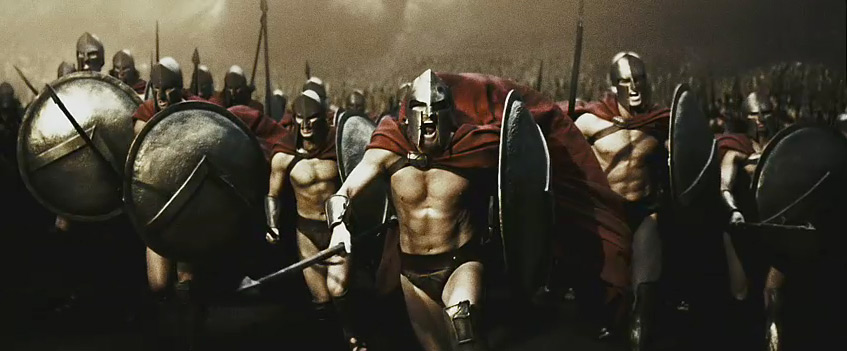
Figure 1. still image from Apocalypse Now (1979)
ENG214.001
Topics in World Literature: Ancient to Medieval
SPRING 2013
War and Heroism
Mondays 6:00-8:00 pm
Peck Hall 3315
Prof. Eileen A. Joy
Office Hours: MON/TUE 4:00-6:00 pm
Peck Hall #2225

Figure 1. still image from Apocalypse Now (1979)
"Force is as pitiless to the man who possesses it, or thinks he does, as it is to the victims; the second it crushes, the first it intoxicates. The truth is, nobody really possesses it. . . . Perhaps all men, by virtue of being born, are destined to suffer violence; yet this is a truth to which circumstance shuts men's eyes. The strong are, as a matter of fact, never absolutely strong, nor are the weak absolutely weak, but neither is aware of this. They have in common a refusal to believe they belong to the same species. . . . The man who is the possessor of force seems to walk through a non-resistant element; in the human substance that surrounds him nothing has the power to interpose, between the impulse and the act, the tiny interval that is reflection. Where there is no room for reflection, there is none either for justice or prudence." ~Simone Weil (from "The Iliad, or The Poem of Force")
COURSE DESCRIPTION
In this course, we will study some of the major works of ancient and medieval literature in the Western tradition, with a special emphasis on war and heroism, the problem of violence, and the question of what it means to be virtuous in a world that is marked by extreme violence. As part of our exploration, we will discuss some of the social and cultural histories that went into the shaping of these works, and we will explore together why it might be important to have a global perspective on literary culture, and further, whether or not we can better understand the world through different cultures' unique artistic productions. Finally, since we will mainly be reading what are called epics and sagas (stories, told in a "serious" manner, containing details of heroic deeds and events significant to a culture or nation), we will also spend some time contemplating why we need such works at all, and why they remain so stubbornly popular even today (think of films, just to same some, such as Gladiator, Troy, 300, Avatar, Arthur, Star Wars, Kingdom of Heaven, and the Lord of the Rings trilogy, and even television series such as Battlestar Galactica and V)--why do we think we need epic narratives (or conversely, why do we think we should outgrow them), and what can epic stories tell us about a culture's hopes and aspirations, as well as its fears and nightmares?
REQUIRED TEXT
Textbook Rental Services>
Davis, Paul et al, eds. The Bedford Anthology of World Literature. Package A (Vols. 1, 2 & 3). Bedford/St. Martin's, 2003.
COURSE REQUIREMENTS
MID-TERM & FINAL EXAM (40% each)
There will be two take-home exams that will comprise sections of intepretive questions and short essay prompts. These exams will not be designed to elicit "right" or "wrong" answers to supposedly objectifiable questions, but rather, are geared toward encouraging you to think creatively about the texts we have read and discussed together in relation to the main themes of the class, and to also help you to showcase your close reading skills.
CLASS PARTICIPATION (10%)
As stated above under "Course Description," active and vocal participation is vital to your success in this class. That means having a good attendance record, coming to class prepared to discuss the readings and films (with texts and notes in hand), and actively contributing to engaged conversations with your professor and fellow student-colleagues.
LATE PAPER POLICY
I do not accept late papers. Period. If there is an extraordinarily good reason for needing an extension on a paper due date, let me know in advance.
ATTENDANCE POLICY
Attendance, promptness, and participation are essential to success in college courses. Faculty members recognize that unexpected occasions may arise when a student must be absent from class, but my general attendance policy is that if you are absent more than the number of required class sessions per week (in this case, that would be more than 2 sessions), I have the option of lowering your final course grade by one letter grade for each additional session missed. Furthermore, if absences become excessive (more than two weeks' worth of sessions), the SIUE Registrar, at my request, reserves the right to withdraw you administratively. For more information on this, please consult the following: SIUE Class Attendance Policy. Failure to attend class in a responsible and committed manner may thus be grounds for failure in or administrative withdrawal from the course.
ACADEMIC DISHONESTY
Any student found engaging in an act of academic dishonesty will be promptly dismissed from the course with a grade of "F." By "academic dishonesty," I mean PLAGIARISM (the act of representing the work of another as one's own), which the University considers a grave breach of intellectual integrity. All definitions, terminology, concepts, and patterns of organization taken from an outside source must be identified and given credit in any essay or exam you write--whether it be for the English department or any other department. For more detailed information on this, please consult the following: SIUE Plagiarism Policy.
DISABILITY ACCOMMODATIONS
If you feel that you are entitled to special accommodations (for example, a volunteer note-taker, interpreter, special desk, or extra time on tests), please contact the Disability Support Services office in Rendleman Hall #1218 (Phillip Pownall, Director), or visit their website, and they will help you fill out the necessary paperwork.

Figure 2. still image from 300 (2006)
SCHEDULE OF EVENTS
All readings are in the Bedford Anthology of World Literature, unless indicated otherwise; readings listed below are accompanied by hyperlinks to notes & study guides, plot synopses, and background material which are provided to assist your understanding of what can often be difficult reading material, and also to help you when preparing for your exams.
| Monday | Jan. 7 | Introduction to Course |
| Monday | Jan. 14 | The Iliad, Books 1 & 9 |
| Iliad Study Guide | ||
| Yet Another Iliad Study Guide | ||
| Iliad -- Detailed Synopsis of Each Book | ||
| Homer Webpage | ||
| Who, or What, was Homer? | ||
| Ian Johnston, "Some Preliminary Observations on Classical Greek Literature" | ||
| Ian Johnston, "The Legend of the Trojan War" | ||
| Monday | Jan. 21 | No Class -- Martin Luther King Day |
| Monday | Jan. 28 | View: Saving Private Ryan (film) |
| Monday | Feb. 4 | The Iliad, Books 1 &9 |
| Monday | Feb. 11 | The Iliad, Books 16 & 18 |
| Monday | Feb. 18 | The Iliad, Books 16 & 18 |
| Achilles's Shield (an imaginative re-creation) | ||
| W.H. Auden, "The Shield of Achilles" | ||
| Monday | Feb. 25 | The Iliad, Books 22 &24 |
| "Why Courage Matters" (NPR audio clip) | ||
| Monday-Friday | Mar. 4-8 | No Class -- Spring Break |
| Monday | Mar. 11 | View: Platoon (film) |
| Monday | Mar. 18 | Discuss: Platoon |
| Mid-Term Exam Due | ||
| Monday | Mar. 25 | Song of Roland: Parts I & II (Online Medieval & Classical Library: Verses I-CLXI) |
| Alternative Prose Translation: Song of Roland, trans, Jessie Crosland (1999) | ||
| Song of Roland Study Guide | ||
| Romance: Heroic Literature (Wikipedia) | ||
| Chansons de geste (Wikipedia) | ||
| Monday | Apr. 1 | Song of Roland: Parts III & IV (Online Medieval & Classical Library: Verses CLXII-CCXCI) |
| View: Ride With the Devil (film) | ||
| Monday | Apr. 8 | Sophocles, Antigone |
| Study Guide: Antigone | ||
| Women in Ancient Greece | ||
| Monday | Apr. 15 | View: Pan's Labyrinth (film) |
| Monday | Apr. 22 | Discuss: Antigone and Pan's Labyrinth |
| Monday | Apr. 29 | Final Exam Due to: eileenajoy@gmail.com [by midnight] |
